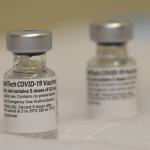Modern medicine has produced many kinds of high-tech miracles, among them gene therapy to correct malfunctioning genes,
biotechnology
Recent Biden Administration initiatives to boost the “bioeconomy” are an acknowledgment that the government’s current biotechnology regulatory policies are unnecessarily slowing the development of important products and processes.
Florida is known for destructive hurricanes and torrid heat waves, but at the end of December, some parts of the state experienced many consecutive days of nighttime sub-freezing temperatures and frost.
If you think biotech crops have some role to play in fighting global hunger, the Non-GMO Project is here to set you straight.
Today, many scientific discussions are shot through with social justice rhetoric, and the debate over food security in the developing world is no ex
Beginning in January, we'll see many more products in grocery stores carrying the USDA's 'bioengineered' food label.
In the coming years, a genetically engineered tomato may be your first line of defense against high blood pressure.
The battle over COVID-19 vaccine mandates has added another layer of controversy to our bitter, partisan dialogue surrounding the pandemic.
For years, the New York Times attacked crop biotechnology on the grounds that it was a corporate ploy hatched by Monsanto to take over the food supply.
If you remember your high-school US history class, you know that prohibition was an abject failure.












